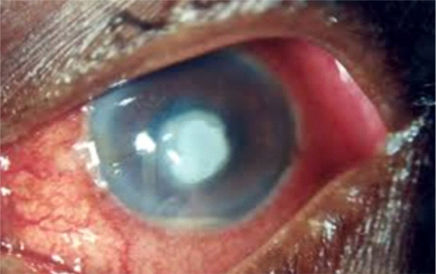A) CORNEAL TRANSPLANT :
Corneal transplantation which involves replacing a diseased or scarred cornea with a new one. In corneal transplant surgery the surgeon removes the central portion of the cloudy cornea and replaces it with a clear cornea.
The chances of success of this operation have risen dramatically because of technological advances. Corneal transplantation has restored sight to many, who a generation ago would have been blinded permanently by corneal injury, infection, or inherited corneal diseases or degeneration.
Recent modified forms of corneal transplant called Lamellar Keratoplasty are also performed. This involves removing only the partial thickness of the cornea that is diseased leaving the rest of the healthy cornea undisturbed.
Lamellar Keratoplasty is of two types :
(1) Deep anterior lamellar Keratoplasty (DALK) , (2) Deep lamellar endothelial keratoplasty (DLEK)
B) Amniotic Membrane Transplantation.
C) Pterygium surgeries.
D) Limbal Stem Cell Transplantation.
E) Patch Grafts- Corneal and scleral patch grafts
.
E) Corneal perforation repair with anterior segment reconstruction.







